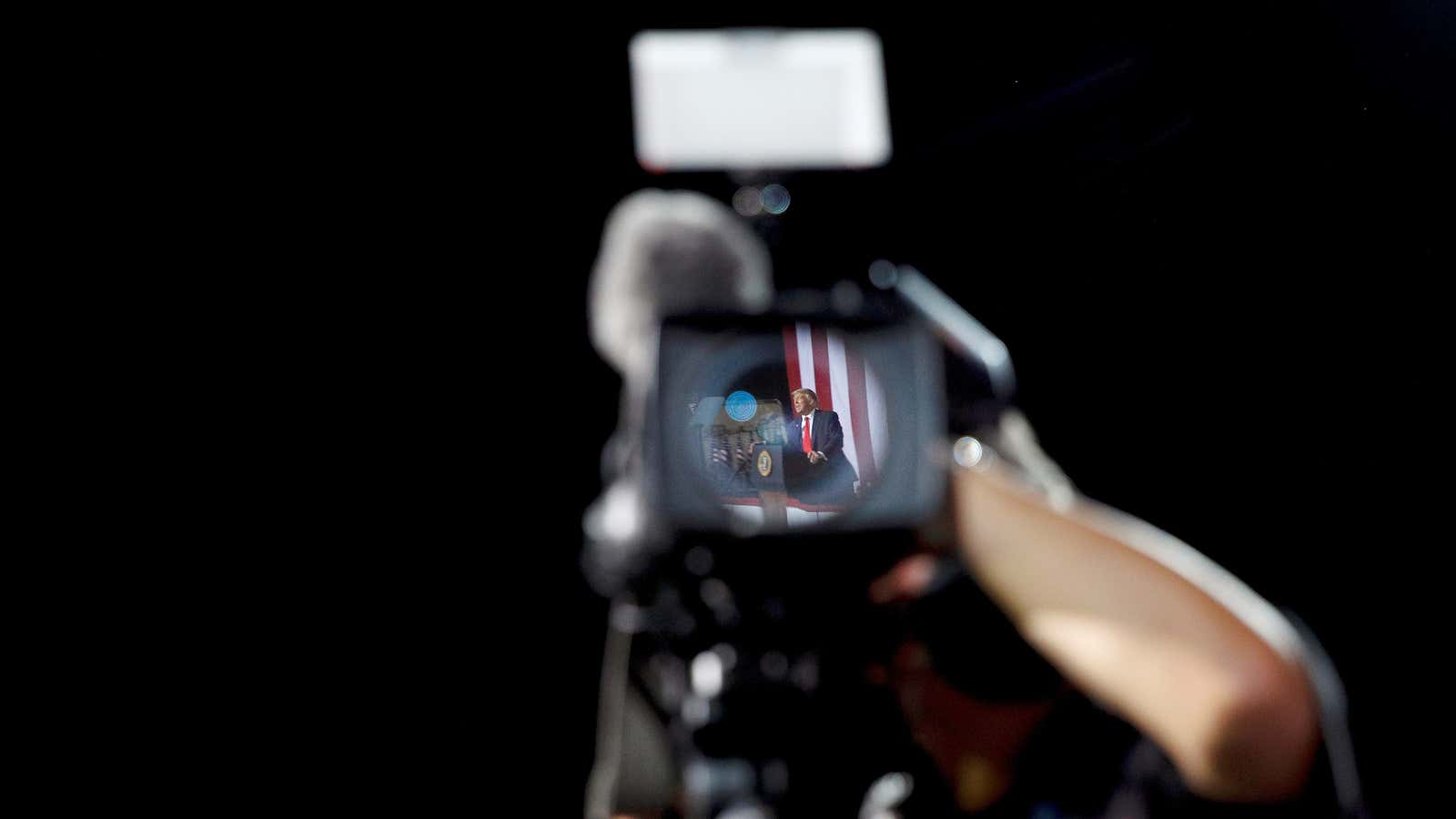With the outcome of the US presidential election potentially days or weeks away, there is more pressure on news outlets than ever to get their coverage of the most divisive election in US history right.
Despite the popularity of social media, news outlets remain a go-to source of information for many people in the US, according to survey data from the Reuters Institute for the Study of Journalism. News consumers are also more likely to trust the media they seek out than what they see on social platforms. If journalists don’t exhibit the patience that they are cautioning their readers to have, both risk jumping to conclusions and spreading misinformation.
“Newsrooms now face some hard choices in how they do their job in the hours, days, and perhaps weeks ahead,” Rasmus Nielsen, the director of the institute, wrote in an email. “We already know from research that news media have been harnessed by Trump and the Republican party in their sustained attempts to question the integrity of mail-in ballots. [They] now risk amplifying false and premature claims of victory and allegations that the election has been ‘stolen’ if they do not handle such claims very carefully.”
Journalists are in a tough bind: When a politician makes a false assertion—like that they have won an election before all the votes are counted—does covering it risk amplifying the mistruth?
“Reporting only statements from politicians that can be substantiated, or are not demonstrably false, will help ensure more informative coverage and limit the spread of misinformation,” Nielsen said. But doing so could also “feed into the preconception that news media are biased and censor some voices.” In its survey, Reuters found that people would rather know what has been said than assume that covering it would be giving the falsehood unwarranted attention.
“Across the political spectrum, many more Americans say that they want news media to report potentially false statements from politicians prominently,” Nielsen said.
That means journalists need to do double duty: report what’s being said, and provide readers with a fact check. Susana Salgado, a professor of political communication, media, and politics at the University of Lisbon, described this as a kind of “meta-reflection and analysis about the news report itself.”
What the US makes of this moment—how well it is able to mitigate political tensions and the negative impact of social media—matters outside the country, Salgado said. “They will set the bar for the role that the news media can play in unprecedented situations in the current Western world,” such as other close or potentially violent elections. “If they fail, the role of the news media in democracy itself could be further questioned not only in the US, but in other Western democracies as well.”
